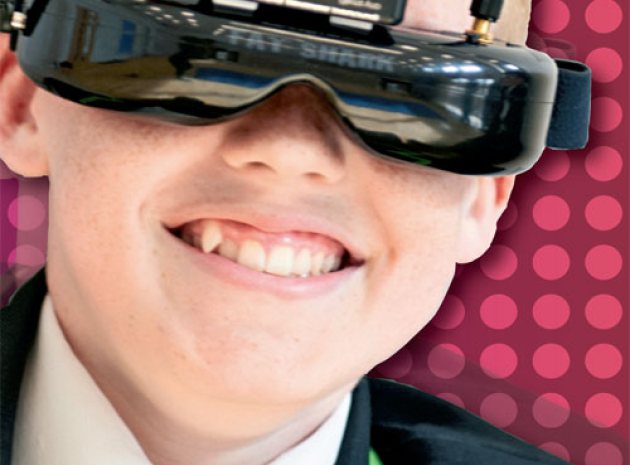The ‘net generation’, children who have grown up in a fully internet-enabled environment, arrive at primary school – let alone secondary -– already adept at learning through technology. Games consoles are commonplace in homes, with 75% of 12-15 years olds having one in their rooms*, and thanks to developments such as the Xbox Kinect, Wii and PlayStation, it’s common for families to interact and communicate through gaming. This kind of technology offers huge potential to inspire and engage young people in the classroom, too; experience tells us that effective lessons are taught using platforms that children regularly engage with, and considering the pervasive nature of computer games, it makes sense to incorporate them into learning within the curriculum.
Unless classroom technology outperforms that of ‘at home’ devices and software, however, pupils will fail to engage. Any ICT investment that doesn’t meet this objective is potentially a waste of resources; it’s my view that 3D projectors, hand held devices and gaming style approaches are the next step to improving both computer science skills, and students’ educational experience more generally. We’ve already had great feedback from schools where we’ve provided technology using advanced platforms such as Microsoft Kinect to teach. For example, the software can be used to demonstrate an interactive heart rate monitor that projects a virtual representation of the user’s heart beating. This really brings lessons to life, increasing the ability of the teacher to involve the young people in what they are learning.
Indeed, a recent industry survey points to the future of the classroom, having found that 3D projectors and software can certainly enrich and enhance the learning environment. The 3D approach alone has been shown to increase concentration for 92% of a class group, and improve performance, with 86% of pupils in 3D classes improving in tests compared to 52% of pupils using traditional classroom resources.
There are only a handful of schools using 3D technology, gaming or hand held devices as teaching aids in the UK at the moment. However, I can see this growing over the next few years, particularly in academies and free schools that wish to incorporate this technology into a modern and updated ICT curriculum – and of course, the recent launch of Raspberry Pi takes this to a whole new level, offering a simple computer platform to enable pupils to experiment, write programmes and participate in computer science.
Crucially, this cutting edge technology is not currently ubiquitous in the home and is not likely to be for some considerable time. It offers that essential element of surprise, intrigue and innovation, therefore, that is likely to captivate pupils’ interest and so provide a unique learning platform that is far from cost prohibitive for education establishments. Game on!
Another Dimension
One forward thinking organisation that has grasped the use of 3D technology, is Blackburn Rovers Community Trust, which acts as a Technology Centre of Excellence for a catchment of North West schools. “We have a full 3D enabled suite, which is enhancing lessons – and the feedback we get from pupils has been incredible,” explains the Trust’s IT manager, Chris Dawes. “Other schools are now showing interest in 3D approaches. Furthermore, some of the lessons we have created are based around game programming using the Xbox Kinect as a platform. Fundamentally, these next generation approaches are enhancing the learning experience for pupils and putting the fun back into classroom activities. It enables teachers to break down the traditional barriers of subjects perceived as more ‘challenging’, like science and maths. And pupils are learning more, and quicker, as a result.”
InfoBar
*OFCOM’s 2009 interim report on UK children’s media literacy, http://tinyurl.com/cbgnyyp
About the Author
With over 20 years in education it, Andrew Cartwright has built up vast knowledge of harnessing education and ICT in ‘live’ classroom environments. Andy’s passion is for delivering proven and emerging technologies that appropriately support technology education and the modern integrated learning environment. find out more at probrand.co.uk









